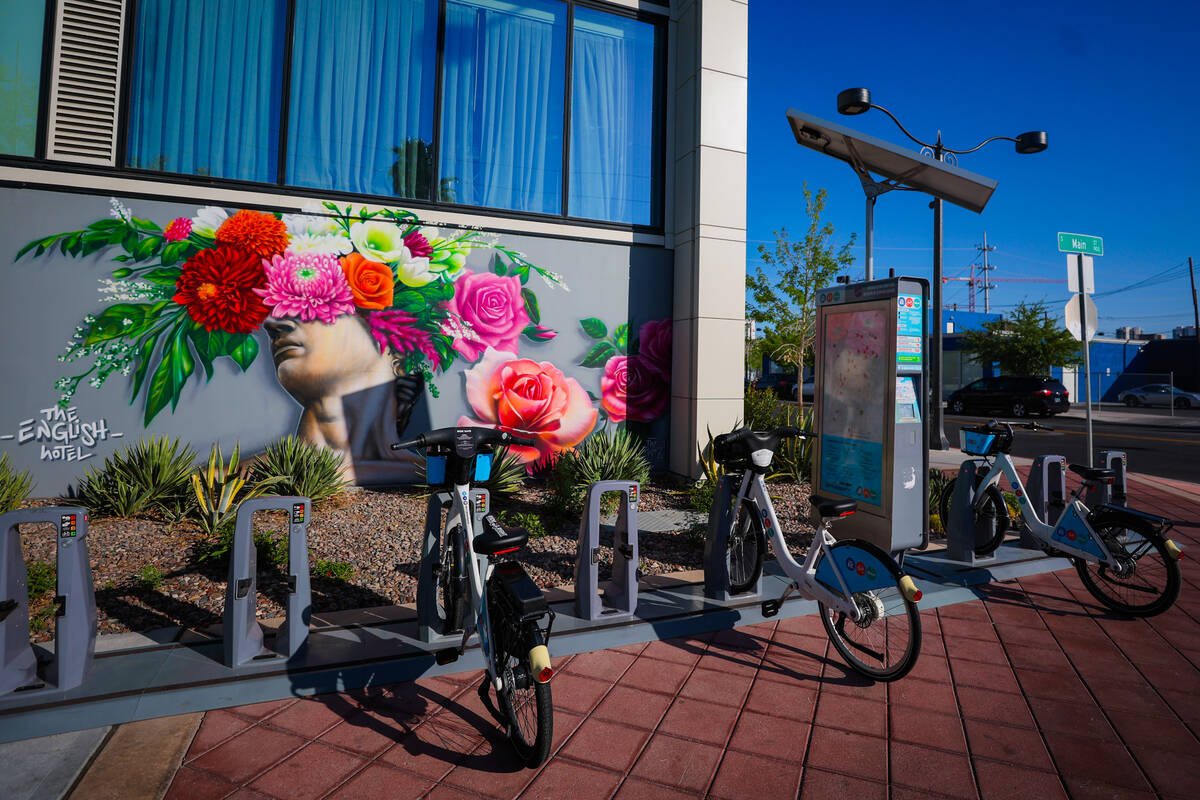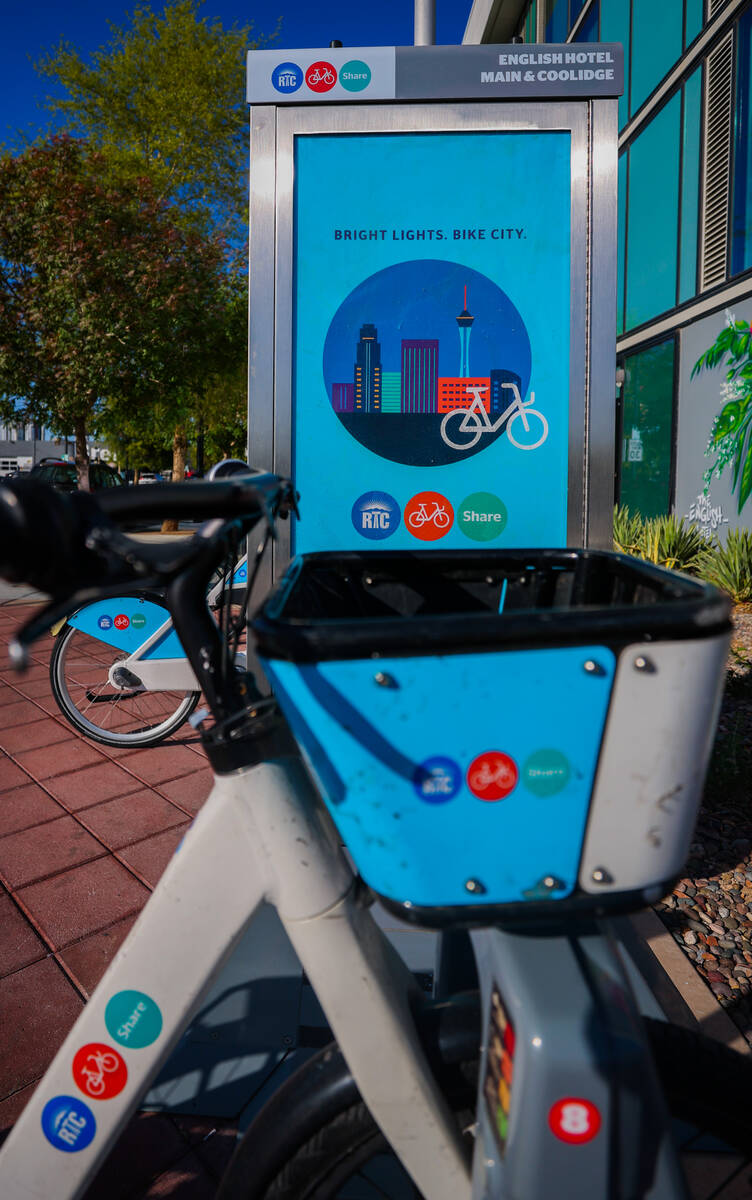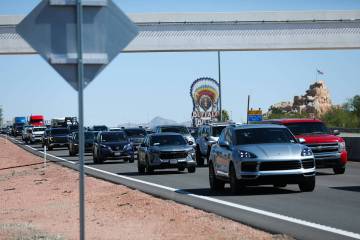A Las Vegas bike share program wants to expand. This project could help
The Regional Transportation Commission hopes to substantially increase its bike share program in conjunction with a multimillion-dollar transit project.
The $378 million Maryland Parkway bus rapid transit project includes adding shared bus and bike lanes, enhanced bus shelters, a fleet of 60 electric buses that will run more frequently and wider sidewalks along the project’s 12.5-mile scope.
It includes Harry Reid International Airport, UNLV, downtown and the Bonneville Transit Center — and eventually UNLV’s Kirk Kerkorian School of Medicine in the Medical District.
RTC started its bike share program in late 2016 and always planned to make it more widely available than just the downtown area. Nearly 30 bike stations are now in operation, stretching from Stewart Avenue to the north, Sahara Avenue to the south, Rancho Drive to the west and Eastern Avenue to the east.
After more than eight years of operating the bike share program, incorporating Maryland Parkway with the planned shared bike lanes is something that will benefit the bike share program, RTC deputy CEO David Swallow said.
The program would be extended down Maryland Parkway from Sahara to Russell. That would include adding bike share stations at most bus shelters along the Maryland Parkway route. Swallow estimates about 30 new bike share stations and 150-200 more bikes, mostly electric, will be added as part of the project.
“What a great opportunity. If you ride a bike, you have that full lane to yourself,” he said. “Our buses, if they come up behind you, if you’re going faster than them, they will wait and if you’re going a little bit slower, they just change lanes and go around you.”
Swallow didn’t provide an estimated cost of adding the new stations and bikes, but for reference, when the RTC expanded the bike share program further east in 2024, adding 37 new electric bikes and 24 docks at six new stations cost $142,500.
Users can purchase one-year ($125), one month ($15) or one day ($5) passes for the bike share program. Users can buy a pass online or via the RTC’s smartphone application. They can find a bike at one of the dozens of stations located in and around the downtown area, unlock the bike, ride the bike and then return the bike to an RTC station and listen for three clicks to ensure it is locked, ending their ride.
The project’s intent is to have a robust bike program that better connects different uses along the Maryland Parkway bus rapid transit route.
The active transportation options, such as walking and biking, offer a healthy alternative to driving. It also helps reduce traffic by taking cars off the road, Swallow said.
In addition to providing a cheaper, healthier mode of travel for area residents and visitors, the bike share system also will help spur economic activity along the Maryland Parkway corridor, he said. Those who ride or walk by a business are more likely to stop in than those who are driving by, Swallow said.
“If you’re at the university (UNLV) you don’t have to go to the parking lot to get in your car to go drive a mile up the road to go to a restaurant, a coffee shop or for shopping,” Swallow said. “Instead, you can either hop on the new bus rapid transit line or even grab one of our bike share bikes, ride up the road and get some sunshine. You check it (a bike) out, you check it back in at a station where you’re going and you don’t have to worry about it.”
Contact Mick Akers at makers@reviewjournal.com or 702-387-2920. Follow @mickakers on X. Send questions and comments to roadwarrior@reviewjournal.com.



















